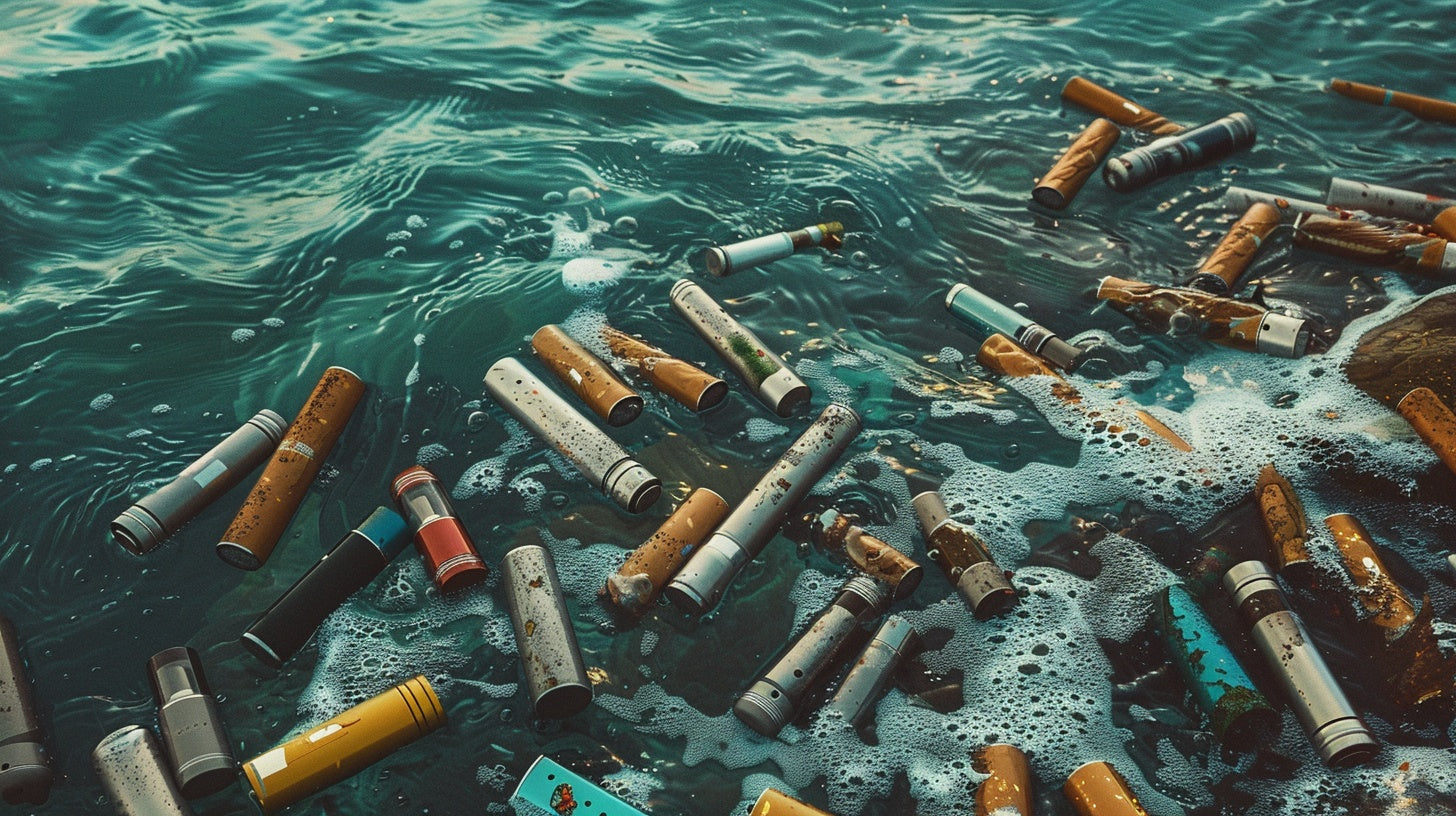June 5, 2024 - Riyadh, Saudi Arabia - World Environment Day, hosted by Saudi Arabia this year, presents the theme "Land Restoration, Combating Desertification, and Drought Resilience", under the rallying call "Our Land. Our Future. We are Generation Restoration”.
As the international community turns its attention to these serious environmental challenges, World Environment Day will serve as an important platform to foster global discussions and promote sustainable practices across all industries, including the e-cigarette sector.
The Environmental Toll of Traditional Tobacco
Traditional tobacco products have a profoundly negative impact on the environment. From cultivation to consumption, they put pressure on the Earth's scarce resources and fragile ecosystems.
The World Health Organization reports that about 1.5 billion hectares of forest have been lost to tobacco cultivation since the 1970s. Each step in the processing of tobacco releases significant amounts of greenhouse gases, leading to a 20% annual increase in global emissions.
Tobacco smoke contains more than 7,000 chemicals, of which hundreds are toxic and at least 70 are carcinogenic. These include nicotine, cyanide, formaldehyde, lead, arsenic, uranium, benzene, carbon monoxide, nitrosamines, and polycyclic aromatic hydrocarbons. The remnants of extinguished cigarettes continue to release toxins into the air.
"Roughly 4.5 trillion cigarette filters pollute our oceans, rivers, city sidewalks, parks, soil and beaches every year". Dr. Rüdiger Krech, Director of Health Promotion at WHO, emphasizes the pervasive impact of discarded cigarette filters on our planet.
Pollution from Disposable E-cigarettes
In the realm of alternative smoking products, disposable e-cigarettes present their own environmental challenges. Disposable e-cigarettes, consisting of atomizers, power sources (lithium batteries), and containers (like cartridges or tanks) filled with e-liquid, contain valuable resources like aluminum, copper, and lithium. In the UK alone, discarded e-cigarette batteries annually contain enough lithium to manufacture 1,200 electric vehicles. The International Energy Agency has warned of a looming shortage of lithium, which could reach 50 percent by 2030. Improper disposal of lithium batteries and electronic components can lead to serious environmental damage, including soil and water contamination and increased fire risk.
Furthermore, the single-use plastics prevalent in disposable e-cigarettes are a major environmental concern. These plastics, which are not biodegradable, disrupt natural habitats and compromise the resilience of ecosystems. In the UK, around 3.6 million disposable e-cigarettes are sold weekly, equating to eight discarded per second, contributing significantly to plastic pollution.
In the meantime, chemicals in e-cigarettes, including nicotine, heavy metals, and flavor chemicals, can threaten water sources and soil. Animals may ingest e-cigarette waste, leading to poisoning or injuries caused by e-cigarette components.

EU Legislative Actions
Recognizing the environmental implications of such waste, the European Union has taken significant legislative steps to address the issue. In March 2022, the European Parliament passed amendments to the regulations concerning batteries and accumulators.
"It is necessary to set out rules on sustainability parameters, performance, safety, collection, recycling and second life of batteries as well as on information about batteries. It is necessary to create a harmonised regulatory framework for dealing with the entire life cycle of batteries that are placed on the market in the Union".
These regulations now impact a range of battery types, from industrial batteries, electric scooter and bicycle batteries, to "portable batteries" in e-cigarette devices. Ensuring that batteries in devices are removable and replaceable will help extend the life of the device, promote interoperability of batteries, connectors, and chargers across different product types, and thus reduce overall waste.

Sustainability Initiatives in the E-cigarette Industry
The e-cigarette industry is increasingly embracing sustainable practices. In the UK, the e-cigarette trade association, UKVIA, has launched Recycle-vapes.co.uk, a platform dedicated to educating consumers, manufacturers, and retailers about reducing e-cigarette waste and complying with regulations. Despite these efforts, there remains much to be done in terms of reducing the industry’s carbon footprint and enhancing the recyclability of products.
Brands like Elux, collaborating with GREENWINGS PROJECT COMPANY, are introducing recycling programs in major cities. Elux plans to deploy 200,000 recycling bins and donate $0.1 to charity for each recycled e-cigarette.
On Earth Day 2023, INNOKIN launched the "Vape For The Planet" campaign, which promotes sustainable vaping practices. Their core product line is designed for long-term use, providing a sustainable alternative to combustible tobacco products while also minimizing waste from disposable items.
Riot Labs, through its Riot Connex plan, offers innovative solutions to reduce the carbon emissions associated with the e-cigarette industry. By choosing Riot Connex over traditional disposable products, users can significantly reduce their carbon footprint.
In response to the pollution of disposable e-cigarettes, Hangsen introduces its newest Bar Series, the Bar series is an eco-friendly alternative to disposable e-cigarettes. By using reusable devices and Hangsen Bar Series e-liquids, users can enjoy great flavors while reducing carbon emissions.
Future Event
The Frankfurt Battery Recycling Expo on June 26-27, 2024, in Germany, will gather industry leaders to explore innovations in recycling and sustainable supply chain solutions.
About hangsen e-liquids, please contact: e-liquids@hangsen.com
